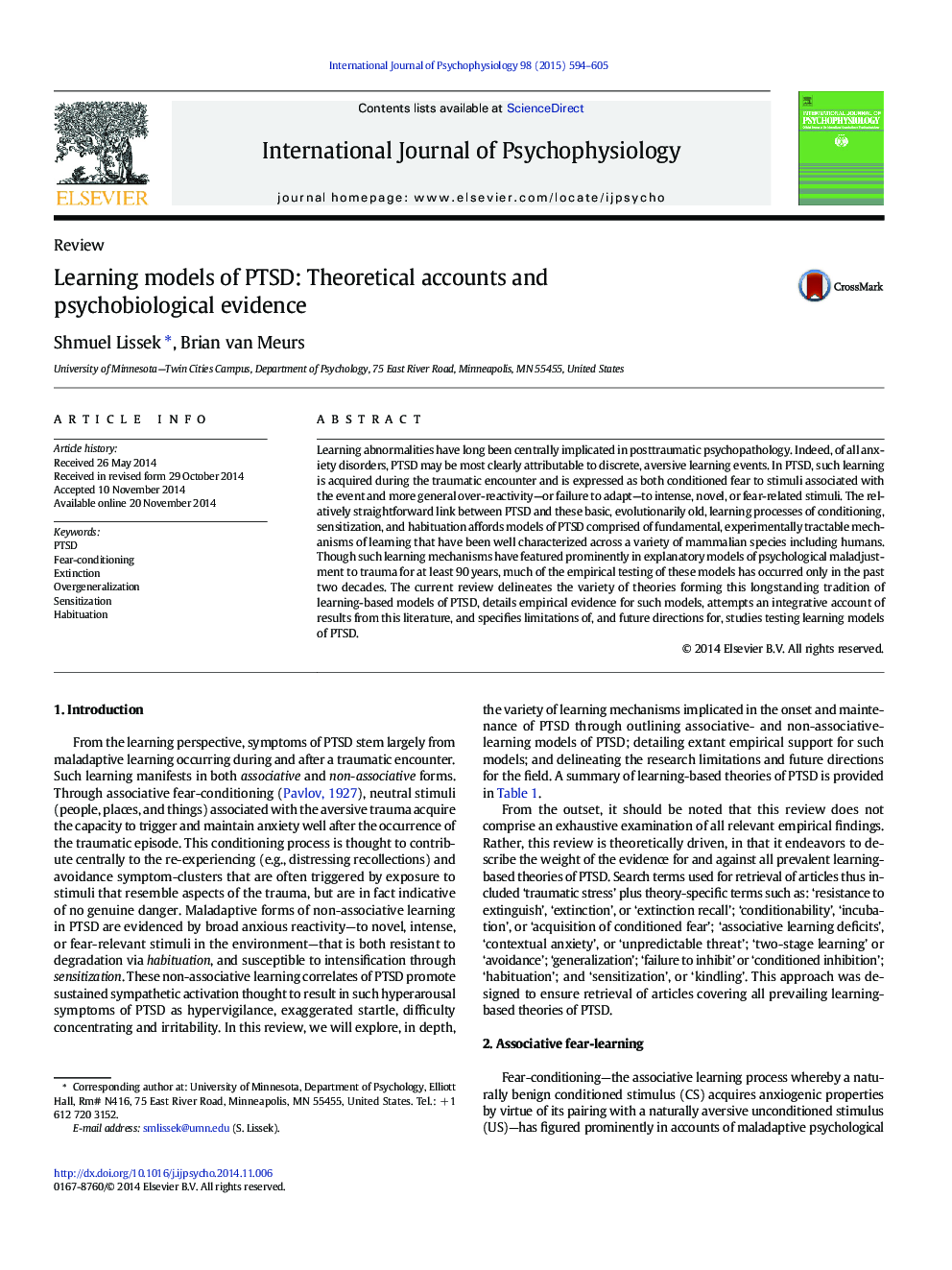| Article ID | Journal | Published Year | Pages | File Type |
|---|---|---|---|---|
| 930840 | International Journal of Psychophysiology | 2015 | 12 Pages |
•Associative and non-associative learning accounts of PTSD are described.•Empirical evidence for and against these accounts is reviewed.•Learning abnormalities in PTSD most supported by the literature are identified.
Learning abnormalities have long been centrally implicated in posttraumatic psychopathology. Indeed, of all anxiety disorders, PTSD may be most clearly attributable to discrete, aversive learning events. In PTSD, such learning is acquired during the traumatic encounter and is expressed as both conditioned fear to stimuli associated with the event and more general over-reactivity—or failure to adapt—to intense, novel, or fear-related stimuli. The relatively straightforward link between PTSD and these basic, evolutionarily old, learning processes of conditioning, sensitization, and habituation affords models of PTSD comprised of fundamental, experimentally tractable mechanisms of learning that have been well characterized across a variety of mammalian species including humans. Though such learning mechanisms have featured prominently in explanatory models of psychological maladjustment to trauma for at least 90 years, much of the empirical testing of these models has occurred only in the past two decades. The current review delineates the variety of theories forming this longstanding tradition of learning-based models of PTSD, details empirical evidence for such models, attempts an integrative account of results from this literature, and specifies limitations of, and future directions for, studies testing learning models of PTSD.
